Most people think of our history as a consistently forward march towards civilization, as we achieved one landmark after another in various fields to reach where we are today. If you actually study history, though, you’d come to the conclusion that it’s actually made up of vast periods of absolutely nothing of note, and rare, unprecedented moments of massive change and transformation that changed the world – for good and bad.
It’s no exaggeration to say that modern civilization wouldn’t exist without any of these monumental, game-changing turning points in history. While some of them were a result of other influential events of the time, others – like our decision to walk on two feet – had no reason to happen at all.
10. Bipedalism

Getting up and walking on two feet comes naturally to almost everyone of us, though evolutionarily-speaking, it’s one of the weirdest traits found in nature. No other branch of life has evolved to do that, as it provides no immediate benefits to the early adopters. The cost of making yourself visible to predators in the wild by standing up far outweighs the long-term benefits of freeing our hands to make complex tools. That’s why bipedalism is still one of evolutionary biology’s most enduring mysteries, as we still don’t understand why we developed it.
The reasons notwithstanding, our decision to walk upright was a game-changing one. It didn’t just free up our hands to build complex tools and techniques to survive in the wild, but also led to bigger brains that allowed us to ultimately dominate the planet.
9. Domestication Of The Horse

We’ve been driving around in cars for so long that we’ve forgotten that it’s a fairly recent development in human history, as it’s barely been a hundred years since commercial automobiles entered the market. For around 6,000 years before that, the most common and effective mode of transport was the trusted horse. Not just transport, but the domestication of the horse in the Eurasian steppe also gave way to organized, cavalry-heavy armies across the region. Some Eurasian empires – such as the Mongol and Hun empires – rose entirely on the back of the horse’s superiority on the battlefield.
The domestication of the horse and its dominance on the battlefield – combined with its ability to travel long distances without fatigue – allowed large empires and kingdoms with complex trade networks to flourish across the Eurasian region, giving shape to the world of today in more ways than we can count. The horse was still in use as a common mode of travel up until the 1800s, when the steam locomotive rapidly outpaced its ability to reliably travel large distances.
8. 536 AD – The Worst Year Ever
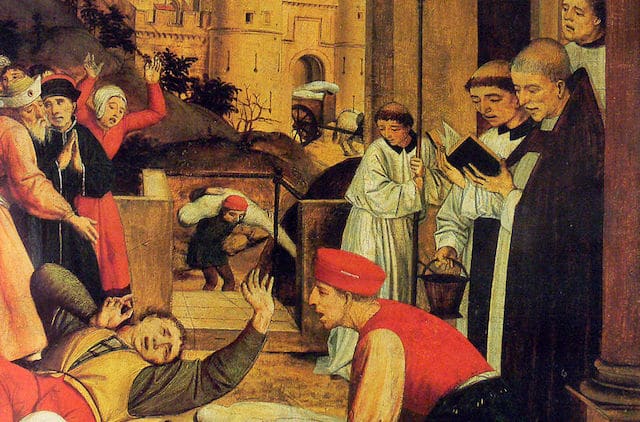
Picking the ‘worst’ year in human history is an impossible task, as our species has seen a lot of exceptionally horrible years. According to one medieval historian, Michael McCormick, though, the answer is simple: 536 AD.
It was the year Europe, the Middle East and huge parts of Asia were engulfed by ash from a massive volcanic eruption in Iceland, plunging almost the entire northern hemisphere in darkness for over 18 months. Even during the summer, temperature barely went higher than 2 degrees Celsius, causing livestock and crops to die in droves.
The events of the year 535 AD kickstarted many events that would end up changing the region forever. It directly paved the way for the mass devastation of the Plague of Justinian in 541 AD, especially in the Eastern Roman Empire, where it killed over half of its population that was already starving due to crop failure and widespread famine. That eventually led to the fall of the Eastern Roman Empire, creating a power vacuum in the region that was soon filled by other, larger empires – especially in the Middle East.
7. The Year 1918
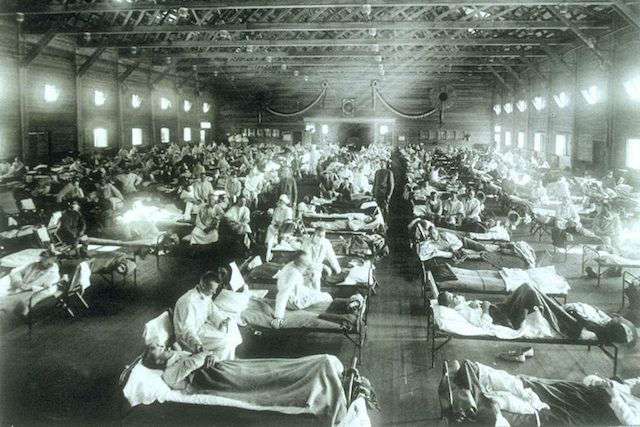
If you take a look at the most influential years in history, few would match up to 1918. For one, it was the end of the first World War. The huge European empires of the previous centuries had suddenly ceased to exist, leaving massive devastation across the world. As three of the biggest empires in history collapsed – German, Austro-Hungarian and Ottoman – by the end of the war, it gave way to new countries across the region, and with it our modern idea of ‘nationalism’.
The war also ended the Russian Empire, as it was overthrown by the Bolsheviks in the Russian Revolution of 1917. That – combined with a reduced workforce with higher bargaining power – bolstered calls for better workers’ and human rights across Europe and its colonies, as it inspired other parallel revolutions throughout the industrialized world. Many of them succeeded – even if in part – as they forced their governments to enact more democratic policies.
1918 was also the year of the Spanish Flu – one of the deadliest pandemics in history. According to some estimates, it infected about one-third of the entire human population at that time. It completely transformed our approach to public health, as countries around the world scrambled to upgrade their healthcare systems. If some historians are to be believed, the Spanish Flu was also the reason behind the end of the war, as the conditions of the war hastened the spread of the virus, devastating entire parts of the population in countries like Britain, France, India and the U.S.A. and turning public opinion against the war.
6. The Black Plague And Renaissance
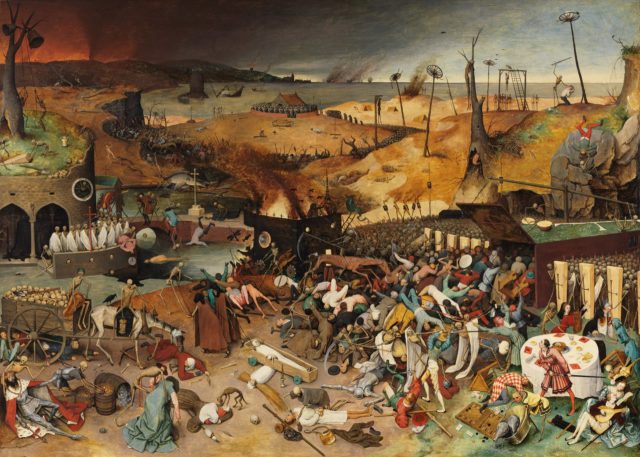
While the current Covid crisis may just end up surpassing it, the Black Death in the 14th century remains the deadliest pandemic in history. By some estimates, upto 200 million lost their lives to the disease across Asia, Africa and Europe, which was the worst-affected. European population was reduced from an estimated 80 million to around 20 million, making it one of the continent’s deadliest disasters ever.
The plague also caused some unintended changes across European society, as the workforce was suddenly reduced by a massive amount by the end of the plague. As there were less people to do the same job as before, there was a push towards developing technologies that reduced dependence on labor. The people that survived the Plague also had more bargaining power than before, as they demanded better working hours and higher pay.
That was the beginning of the Renaissance – a period of widespread social and technological change across Europe. It also hastened the fall of feudalism, as the sheer number of serfs required to maintain the system simply didn’t exist anymore. The period would be a defining one for the continent, as many historians believe that the technological and social changes of the following centuries wouldn’t have been possible without the widespread devastation of the Black Plague.
5. End Of WW2, 1945
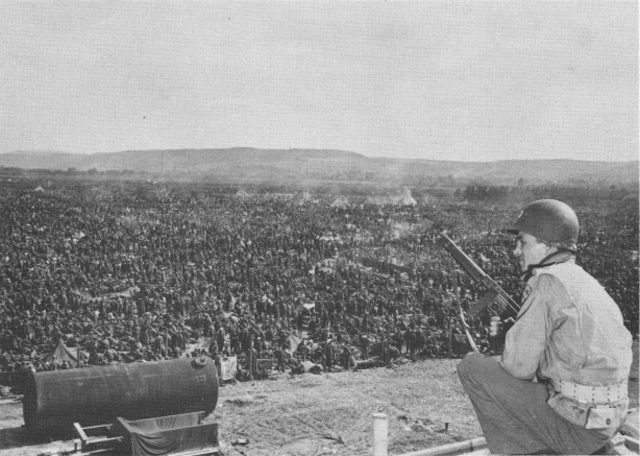
The Second World War was by far the biggest war we’ve ever seen, as almost every country in the world was involved in it in some way. However, the war itself did little to shape up the new world. It was what happened after it that really defined modern history.
The year 1945 – claimed by many historians to be the beginning of contemporary history – was important for many reasons. It was the unofficial beginning of the Cold War, as both the Soviets and western free-market powers moved to secure as much post-war territory as possible.
The unannounced rivalry between Soviet-style socialism and free-market capitalism – clearly visible in post-war borders across Europe and Asia – would end up defining the modern era.
It was also the beginning of the nuclear age, and with it – intentionally or unintentionally – the modern technological era. The Cold War would end up taking us to space, inspiring immense innovation in fields like medicine, communications and infrastructure, and leading us to develop terrifying weapons of mass destruction no one had ever dreamt of.
1945 was also when our modern ideas of human rights took shape, as the United Nations was set up to ensure that things don’t go out of control like that again.
4. The Agricultural Revolution
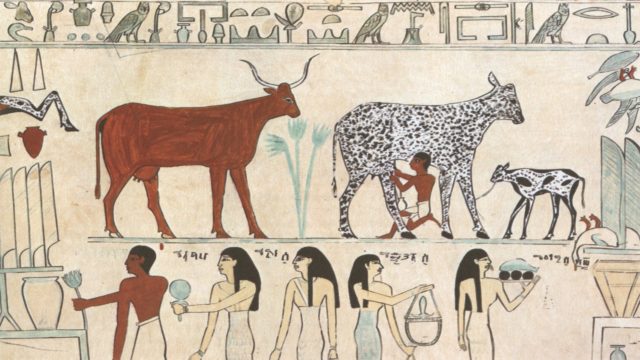
We’ve been growing our own food for so long that we forget that we’ve been hunter-gatherers for most of our history. The agricultural revolution happened around 10,000 years ago, though Homo sapiens could be traced as far back as 200,000 years.
That single step in our evolution caused profound changes in human society, steering us towards the current path in more ways than we can count. As we settled down and started farming for sustenance instead of hunting whatever we could find, a big chunk of our population was freed up to do other tasks. Not everyone had to be a proficient killer anymore, as people could now pursue specialized interests like metalworking, religious theory or politics.
Farming gave rise to social stratification, as society was quickly divided into whoever held the means of producing food – and weapons – and whoever didn’t. While that led to rapid and efficient growth – allowing farming communities to get bigger and more powerful than ever before – it also separated society into haves and have-nots.
It was also the beginning of mass viral outbreaks, as we started living in close proximity to livestock. While it was certainly a game-changing event in human history – as farming does allow a lot more production and growth than hunting gathering – our decision to settle down and farm certainly had its costs.
3. Spring of Nations, 1848
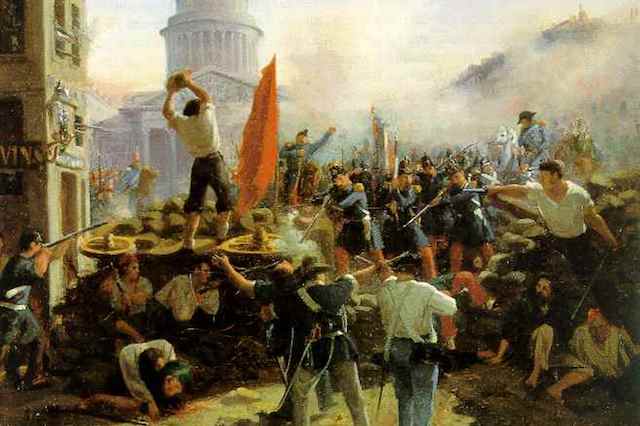
The Spring of Nations – also known as the People’s Spring – was a period of mass upheaval and political change across Europe. It was a mass pushback against centuries of monarchism, fuelled by degrading working conditions, state repression, and a wave of liberalism sweeping across major European economies of the time.
The revolutions started with localised revolts in Italy and France, but soon spread to almost every European empire – except Russia, Spain and Scandinavia. A lot of these revolts had a nationalistic side, too, as local populations demonstrated their anger against decades of foreign, imperialist rule.
While the revolutions were brutally crushed in most countries, it led to equalizing reforms in countries like Belgium and Netherlands. It was, however, wildly successful in France. The French Revolution of 1848 led to the establishment of the French Second Republic, as the idea of universal suffrage was reintroduced into the constitution.
2. Golden Age of Islam
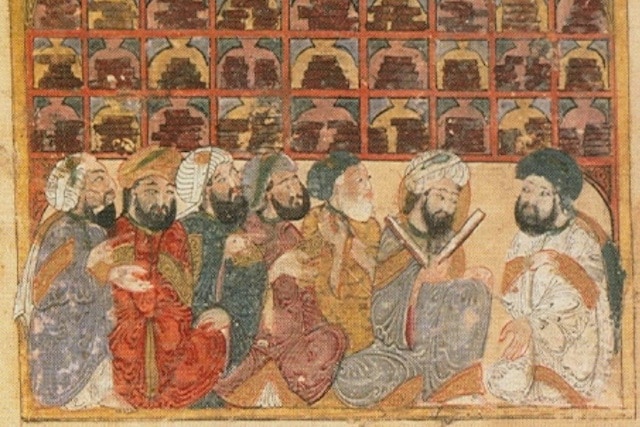
The Golden Age of Islam refers to a nearly 600-years-long period of scientific, economic, cultural and social transformation in the Middle East that shaped up the modern world. Coinciding with the Dark Ages in Europe, the period was characterized by massive progress in technology, medicine, culture and literature.
Fuelled by the economic prosperity of the Abbasid Caliphate, Baghdad quickly came up as the center of science and medicine across the world. This was when a lot of the knowledge lost in the dark eras of the previous centuries was retrieved, as the Caliphs extended invitations to scholars from across the world.
The period was so influential for science that at its peak, Arabic was the language of science throughout the known world (hence al-gebra, al-gorithm etc.). It was also a golden age of art and literature, as numerous ancient Greek, Chinese, Indian and Persian works were rediscovered and translated into Arabic for record-keeping. It was also when the ancient Chinese technique of making paper was developed on a mass scale for the first time, allowing more knowledge to be generated and preserved than ever before.
Even if it was abruptly ended by the Mongol invasion of 1848 – which included the infamously-brutal siege of Baghdad – the Golden Age of Islam was the birthplace of many parts of modern life, making it one of the most influential eras for humankind.
1. The Industrial Revolution
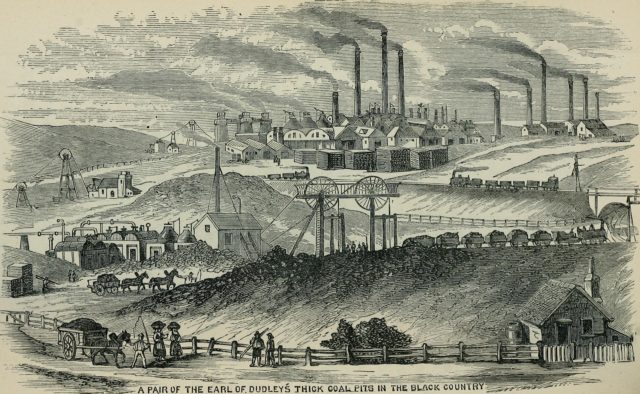
The Industrial Revolution was one of the most influential periods in our history, and its impact on society goes beyond just mechanization of labor.
Fuelled by rapidly depleting resources in Europe – especially Britain – and the emergence of fossil fuels like coal and gas, the Industrial Revolution changed the way we use energy. Rather than just using the energy received from sources like the Sun, with coal, we could now store and manipulate energy in any way we want.
As factories started deploying even more advanced tools and technologies to increase production, the labor force had to migrate from rural areas to urban, industrialized regions, giving rise to some of the largest metropolises of today. The Industrial Revolution also saw massive changes in popular thought, as more and more educated people working together in factories started demanding better rights and working conditions.
Unfortunately, it was also a revolution in war technology, as powerful industrialized empires looked to expand their territory to further aid production. As we got better at civilian technology, the same improvements were used to make our weapons deadlier than ever before, leading to some of the most devastating wars in human history.